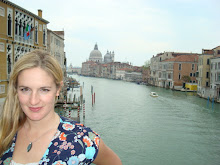
The book publishing industry vs the advertising industry, a conflict of interest or more alike than we think?
When I came across Krizia de Crescentis blog on the advertising industry, I realized there are a lot of similarities and differences between the publishing and advertising industries.
First both are being transformed by convergence, in this new digital age both book and advertisements used to be relegated to paper but now can be experience by a multitude of mediums. For example as a result of convergence books can be read as e-books, on the internet, via websites, and blogs as well as on tablets like the Ipad or Kindle. Even audio books have transformed from the outdated “book on tape” version to CD’s, mp3’s and podcasts. In a nutshell publishing is becoming faster, easier, and cheaper the audience for once gets a say in what they like and what they want to read, in a sense it is becoming more democratic. Making novels compete for readers and transforming self publishing into a respectable norm. As Andrea Sachs wrote in Time magazine, "Self-publishing has gone from being the last resort of the desperate and talentless to something more like out-of-town tryouts for theater or the farm system in baseball. It's the last ripple of the Web 2.0 vibe finally washing up on publishing's remote shores".
Likewise advertisements have gone from static print form in magazines, newspapers and billboards, to include multimedia, moving, interactive screens in tube stations, store windows and city squares like Piccadilly Circus and Times Square. Similarly commercials are now not only on TV and radio but before movies in the theater and attached to online searches and downloads often via spam. It’s as if paid advertisements are filling up the margins of more than magazines and newspapers but our whole world.
In contrast books still seem to be the only hold out when it comes to letting ads invade their pages. Thankfully we don’t see an ad for shampoo or the newest style of shoes in between every chapter. Books have still seemed to keep their aura of art or academics sacred, which is why the experience of opening a book is still loved by so many. It’s all about escaping the buzz of the world and when you open a book all the ads around you disappear when we open the pages of a book.
Still the publishing industry has to adapt to people wanting greater online access, consumer generated content, and the ability to publish their own books. As companies like Amazon and Google provide these services old school publishing houses have to change with the rising tide of popular demand or else face extinction.
Perhaps the hope for books is to look to advertising; already we see ads for books when we are shopping on Amazon, ebay or Google. As all of these websites are using books as promotional devices. For example ads saying “join our newspaper/club/ site and get this book free!” are seen all of the time especially on an author or publishers website or blog. It’s through these pervading ads that the book industry and the advertising industry are meeting.
www.nymag.com
www.time.com
www.icmrindia.org
www.publishingtrends.com










